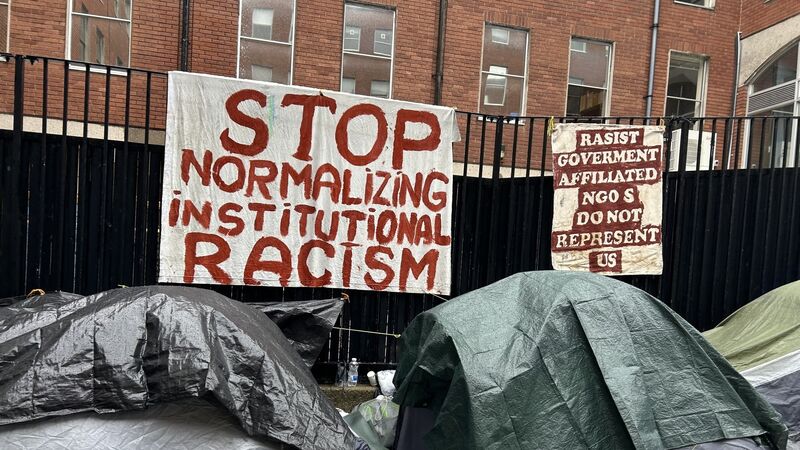Crooksling ought to be a turning point for international protection applicants

Homeless international protection applicants were moved from their makeshift camp on Mount St in Dublin to a completely inadequate site in Crooksling, Co Wicklow, with similarly flimsy tents to shelter them from the weather.
Roderic O’Gorman said on Sunday that there was no attempt to take homeless protection applicants in Dublin out of the public eye in advance of St Patrick’s Day, when they were transported, on Saturday morning, from Mount St to a site in Crooksling, Co Wicklow.
The Integration Minister also said it was in people’s best interests to move to a better site. The facts, unfortunately, suggest otherwise. And perhaps what matters is not intention but the manner in which people were treated and what they experienced on Saturday.
















